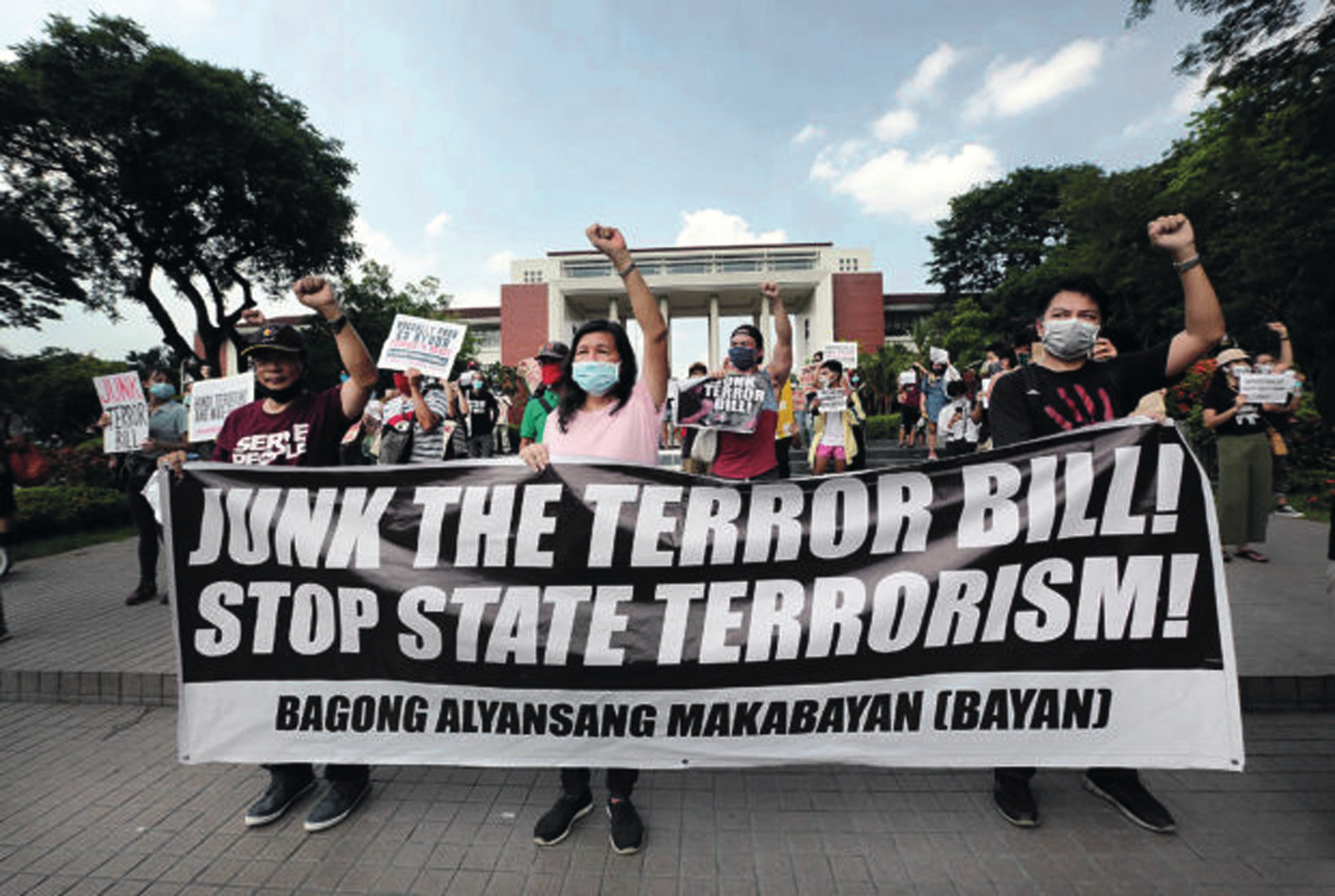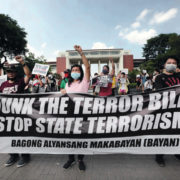
A copy of the controversial anti-terrorism bill has been sent to Philippine President Rodrigo Duterte, Malacañang confirmed on Tuesday, June 9.
Earlier that day, Senate President Vicente Sotto III said that he and Speaker Alan Peter Cayetano have already signed the proposed bill.
“[Cayetano] signed last night. Sending it to PRRD [President Rodrigo Duterte] this morning,” he said.
Sotto added that Executive Secretary Salvador Medialdea and the Presidential Legislative Liaison Office received a digital copy of the bill through e-mail.
Presidential Spokesperson Harry Roque said the president has 30 days to act on the legislation or else the bill will lapse into law 30 days after receipt.
“We have a 30-day period to review, either to veto or to sign the bill. Otherwise, kung wala pong aksyon ang presidente (if the president does not act on it), it will become law,” Roque said after he confirmed the news in a virtual press briefing.
The Anti-Terrorism Act of 2020, which seeks to strengthen the Human Security Act of 2007, grants any law enforcer the right to arrest and detain without warrant “a person suspected of committing any of the acts” punishable under the measure for 14 calendar days, extendable by 10 days. The suspected “terrorist” can also be placed under surveillance for 60 days, extendable by up to 30 more days, by the police or the military.
Acts punishable under HB No. 6875 include:
- Engaging in acts intended to cause death or serious bodily injury to any person, or endangers a person’s life;
- Engaging in acts intended to cause extensive damage or destruction to a government or public facility, public place, or private property;
- Engaging in acts intended to cause extensive interference with, damage, or destruction to critical infrastructure;
- Developing, manufacturing, possessing, acquiring, transporting, supplying or using weapons; and
- Releasing of dangerous substances, or causing fire, floods or explosions.
Any person who will propose, incite, conspire, participate in the planning, training, preparation, and facilitation of a terrorist act, as well as those who will provide material support to terrorists, and recruit members for a terrorist organization, will also be penalized by life imprisonment without the benefit of parole.
Meanwhile, anyone who treatens to commit terrorism, and those who propose any terroristic acts or incite others to commit terrorism will suffer imprisonment of 12 years.
This goes the same for anyone who voluntarily and knowingly joins any organization, association or group of persons knowing that such is a terrorist organization.
The bill has been receiving a lot of flak for its broad definition of what constitutes as “terrorism.”
Netizens comprised of youth, progressive, and human rights groups have trended the hashtag #JunkTerrorBill and started petitions and appeals to veto the measure.
The Concerned Lawyers for Civil Liberties last week argued that the bill gives the government almost free rein in determining who are suspected terrorists.
“Even ordinary citizens airing their grievances against [the] government on social media may fall within its ambit,” it said.
“The general tone of the bill supports secret surveillance — the courts are required to be informed of such surveillance, but only upon [the] filing of charges before the prosecutor. In short, subjects of surveillance and ‘suspected’ persons will have already been hauled to jail before they are made aware of actions against them,” it added.
Meanwhile, Human Rights Watch sounded alarm over the bill providing an “overbroad definition of terrorism.”
“The Anti-Terrorism Act is a human rights disaster in the making,” said Phil Robertson, deputy Asia director at Human Rights Watch. “The law will open the door to arbitrary arrests and long prison sentences for people or representatives of organizations that have displeased the president.”
Several House lawmakers have also withdrawn their ‘yes’ votes for the anti-terror bill, with Albay 1st District Representative Edcel Lagman and Bayan Muna Representative Carlos Zarate even urging Cayetano not to sign the bill yet.
Roque, for his part, reiterated that the bill will have safeguards against human rights abuses.
“There are safeguards po. Unang-una, kinakailangan po may (First, it is necessary to have a) judicial declaration to be classified as a terrorist group,” he said.





